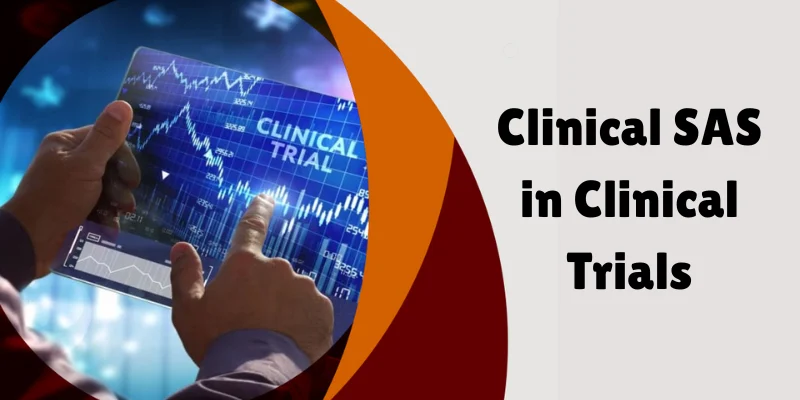
Clinical SAS is a powerful tool used in clinical research to manage, analyse, and report clinical trial data accurately. In the world of clinical trials, ensuring data integrity and regulatory compliance is essential. Clinical SAS supports pharmaceutical companies and CROs by streamlining the data process across all phases of a study. Clinical SAS Training in Chennai offers both online and offline expert coaching along with career-oriented placement support.
What Is Clinical SAS?
- Clinical SAS guides to the use of SAS (Statistical Analysis System) software in clinical research for managing, analysing, and reporting clinical trial data. In the pharmaceutical and life sciences industries, data integrity and compliance with regulatory bodies, such as the FDA, are critical.
- SAS tools enable the efficient processing of large volumes of data, making them a preferred choice in clinical research. In simple terms, clinical SAS in clinical trials refers to the use of SAS to ensure accurate, reliable, and compliant data handling across various trial phases.
- Gain the basics of data analytics skills by enrolling in SAS Training in Chennai to enhance your career opportunities.
Role of Clinical SAS in Clinical Trials
- The role of SAS in clinical research is central to how studies are conducted and reviewed. Clinical SAS is used to create datasets, perform statistical analysis, and generate reports that are submitted to health authorities for review.
- For example, SAS programs are designed to work with standards such as CDISC, including SDTM and ADaM, ensuring that the trial data structure meets global regulatory requirements.
- One of the most significant benefits of SAS programming in healthcare is its ability to handle complex trial data from different phases, sites, and patients. It ensures clinical data analysis is thorough, timely, and accurate.
- So, is SAS used in clinical trials? Absolutely, and it’s considered the industry standard for statistical programming in this space.
Why Is Clinical SAS Important for Clinical Trials?
- The pharmaceutical industry requires data that meets strict regulatory standards. That’s why regulatory compliance is a core reason why clinical SAS is important. It reduces manual errors, ensures standardised data formats, and allows teams to produce outputs for FDA or EMA review efficiently.
- SQL Training in Chennai offers the best career opportunities, especially for healthcare professionals looking to enhance their data skills. It supports better safety analysis and risk assessment.
- These benefits are why many pharmaceutical firms and Contract Research Organisations (CROs) invest in SAS-based systems and teams.
Skills Required to Work in Clinical SAS
- To become a clinical SAS programmer, professionals need strong skills in base SAS, macros, and advanced procedures. However, more importantly, they should understand the phases of clinical trials and be able to work with pharmaceutical analytics, clinical data structures, and regulatory documentation.
- Understand how SAS healthcare software is used to process medical data effectively in clinical research and healthcare analytics.
- A thorough understanding of CDISC standards, particularly SDTM and ADaM, is crucial. These are the formats required for regulatory submissions, allowing programmers to build datasets that align with FDA expectations.
- For those asking how SAS is used in pharma, it’s mainly for cleaning, transforming, and analysing clinical datasets.
Career Opportunities in Clinical SAS
- There is a growing demand for SAS professionals in the pharmaceutical and healthcare sectors. Career roles include Clinical SAS Programmer, Clinical Data Analyst, and Biostatistician.
- These positions are in high demand at pharmaceutical companies, Contract Research Organisations (CROs), and even public health institutions.
- To develop your career and access placement-focused courses, visit a reputed Training Institute in Chennai.
- Thanks to the rise of data in medicine, more companies are investing in SAS programming in clinical trials. If you’re interested in the field, now is a great time to build your expertise and become job-ready.
To sum up, clinical SAS in clinical trials is a cornerstone of modern pharmaceutical research. From ensuring clinical data analysis to meeting regulatory compliance, SAS tools are essential for success. Whether you’re exploring a career or aiming to upgrade your skills, Clinical SAS offers strong potential in the ever-growing field of healthcare analytics.
Also check: How is SAS Used in the Clinical Domain